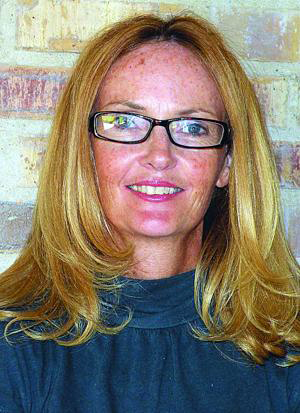By Lisa Mitchell-Bennett, Tu Salud
Despite challenging circumstances, there are humans who are capable of finding a state of well-being even in the harshest of conditions. Unfortunately, life does not allow everyone a level playing field, and of course society (in some cases our own bodies), create conditions where optimum physical health is not possible. There are folks who have to work harder for less, have suffered unimaginable trauma and in some cases bodies that are ravaged by disease and illness that cannot be prevented. Despite inequities, there are still individuals who are able to find a certain wellbeing that others, with more privilege, never achieve.
What does it mean to be well? According to the World Health Organization, wellness is not merely the absence of disease or infirmity, rather it is a state of physical, mental, and social well-being. Wellness is a deliberate act that requires us, regardless of the details of our lives, to take action. According to the National Wellness Institute, “Wellness is an active process of becoming aware of and making choices toward a healthy and fulfilling life. Wellness is more than being free from illness, it is a dynamic process of change and growth.”
According to Dr. Selma Yznaga, Associate Professor of Counseling at the University of Texas Rio Grande Valley, “wellness is a sense of physical, psychological, spiritual, and emotional stability and strength. Wellness is thriving as opposed to surviving. We won’t all experience it in the same way, and it doesn’t just ‘happen’ to us – it takes some work. But the work is so worth it!”
The National Wellness Institute describes well-being as encompassing six dimensions: Work, Social, Physical, Intellectual, Spiritual and Emotional.
1. Work (occupational) is personal satisfaction and enrichment in one’s life through work. Understandably most people in the world don’t get to choose their work and many have to do very difficult work just to survive, but the idea that some of our activities are gratifying to us in important, whether it be tending a garden or caring for our elderly parents.
2. Social emphasizes the interdependence between others and ourselves. Contributing to the common welfare of the community or family feels good.
3. Physical is when optimal wellness is met through the combination of good exercise, healthy eating habits, and enough sleep. When your body feels good, so does your mind.
4. Intellectual: A well person expands his or her knowledge and skills by always learning rather than becoming complacent.
5. Spiritual: represents our search for meaning
6. Emotional: awareness and acceptance of one’s feelings.
Keeping the six dimensions of well-being in balance is the key to real wellness. If we picture them each as equal pizza slices in a pie-graph, when one is out of kilter, it puts the others off balance as well. While we can never be perfectly balanced in these dimensions, and perfection is never the goal since we know life is messy, the more we can pay attention, and be aware when we are neglecting one of the six areas, it will help us course correct and focus our efforts on the area neglected.
But how do we know when our emotional, intellectual, spiritual, social or vocational dimensions are out of whack? It’s pretty easy to tell when we are physically unwell, but we are often better at hiding or being in denial about imbalance in the other areas of our lives. By the time it starts affecting our physical health, we are already far off track.
According to Yznaga, developing a personal wellness plan is key.
“It may sound corny or unnecessary, but just paying attention to each dimension is crucial to maintaining our overall wellness.”
The National Wellness Organization suggests several steps to building this plan, starting with honestly taking stock of each wellness dimension; assessing where you are currently investing your energy; creating your ideal vision of wellness by creating a wellness budget (considering you have a set number of hours and energy each day, what do you want to invest in?); and then reflecting on your vision–followed by a simple action plan to make it happen. For example, what specifically has to change in my life so that I can invest more time in my physical or spiritual health?
Well-being or wellness, doesn’t mean we are always 100% healthy, but it does mean creating an intentional life of thriving not just surviving. Wellness is a process that doesn’t just happen, it takes time and patience. It’s a life-long process worth the investment, because Tu Salud ¡Si Cuenta! (Your Health Matters!)




